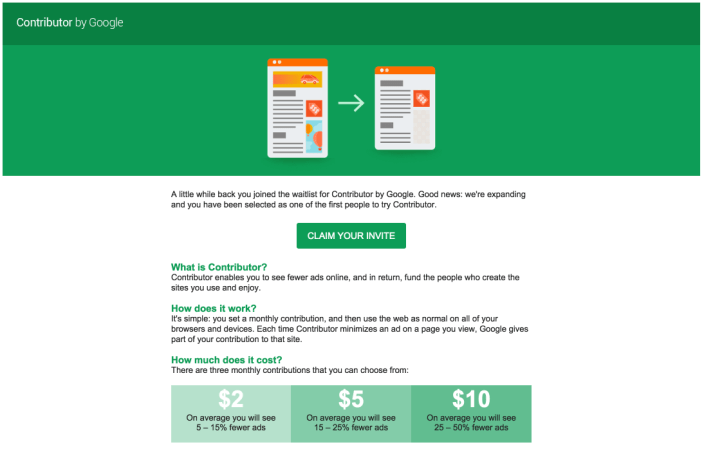German Publishers File Antitrust Complaint Against Google over Ad Revenues, Snippets
![360505392_69557c287d_o[1]](https://the-digital-reader.com/wp-content/uploads/2014/06/360505392_69557c287d_o1.jpg)
They had already given Google permission to use their snippets and links for free, thus rendering any demands for payment moot. Apparently the publishers saw that flaw in their case as well, and they have taken steps to repair it.
The German news site Heise reported today that VZ Media (the newspaper coalition which filed the copyright complaint next week) and 12 other German media companies have collectively filed an antitrust complaint against Google.
If I understand this correctly, the publishers are arguing that Google’s dominance of the search engine market in Germany gives it undue power over the publishers. As a result, when Google asked last year for the publishers to agree to let Google use the snippets and links for free, the publishers feel they were blackmailed or extorted into giving Google what it wanted.
They say that is an antitrust violation.
If you’ve been following this story for long enough then you know that last year Germany passed a new law which ostensibly gave German publishers complete control over how their content is used. In reality that was designed to force Google and other search engines to pay for the privilege of using links and snippets. German publishers had been trying to get money out of Google since 2010, and after failing in the courts and with regulators they got new regulations passed which gave them the control they wanted.
That law went into effect in August 2013. In June 2013 Google anticipated the law by changing the ToS for Google News (in Germany). Now any site that wanted to be listed had to explicitly agree to let Google use the snippets and links for free otherwise Google would delist the site (and cost the site all of the free advertising Google provides).
It is that threat which is now the subject of an antitrust complaint. "For us, this threat is clearly a market abuse," said Thomas Düffert, chairman of the Madsack newspaper conglomerate. (Why the publishers didn’t make this argument at the time Google extracted that permission from them, I don’t know. Perhaps their lawyers hadn’t thought it up yet.)
The complaint has been filed with Bundeskartellamt, the German Federal Cartel Office today, so it will likely be weeks or months before we get a response.
Over the past few years Google Google has been the subject of numerous antitrust investigations in Germany. In fact, one early attempt to get Google to pay for the use of snippets was an antitrust complaint filed in January 2010. That obviously failed, as have others.
But not all such antitrust complaints have failed. Google is currently trying to settle an antitrust action brought by the EU over Google’s dominance of the search engine market. At this point it is still not clear how it will turn out, but regulators do seem to have ruled out breaking up Google.
"Europe can’t dismantle Chinese, American, Indian or South American companies,"German Interior Minister Thomas de Maiziere, 60, said on Tuesday when asked about Mountain View, California-based Google, the world’s biggest search provider. "What kind of a legal system is that? That’s not going to work."
Thanks, Name!
image by Gastev



Comments
puzzled June 24, 2014 um 6:58 pm
Google can just do in Germany what eBay does in Australia: run the operation from outside of the country, thereby not being subject to local law.
Valentine June 25, 2014 um 6:36 am
They’d have to do that from outside Europe. EU zone …
Nate Hoffelder June 25, 2014 um 7:37 am
Switzerland?
puzzled June 25, 2014 um 7:16 pm
Since it is Germany-specific law (not EU law), they should just need to get out of Germany.
Hrafn June 25, 2014 um 1:26 am
At the end of the day this all appears to be futile, as German courts cannot force Google to list German publishers. These publishers need Google more than Google needs them, so if they do not allow Google to list them on terms Google finds acceptable (i.e. no revenue sharing) then Google can simply walk away.
Valentine June 25, 2014 um 6:47 am
Look at Eastern Europe and Russia.
When there’s a demand, people will get what they want. If Google leaves, then someone local will step up and make a killing. They’ll develop the market according to local rules and they’ll be ready to reach into the next country or be bought by Google’s competitors.
Don’t believe me? These days you can write a blog in 15 minutes, a few days a full featured one. A full websites selling ebooks wouldn’t be hard to do, and Germany isn’t a third world country to lack starting funds or professional coders.
Google will settle. They don’t have a choice, they never did.
Hrafn June 25, 2014 um 11:19 pm
But Google won’t "leave", they’ll simply 'leave out' indexing newspaper articles from German publishers. Most people will most likely continue to use the same search engine as before, and follow links to other news sources. Google suffers very little, German publishers suffer a lot. This is what actually happened in Belgium when Belgian publishers tried to do much the same thing. Google complied to a court order and delisted them all, and Belgian publishers screamed bloody murder about the result.
The ‘EU Google Tax’ – A very unpromising work in progress? – The Public Privacy November 3, 2014 um 8:37 am
[…] recently, the very same German publishers filed an antitrust complaint with the German Federal Cartel Office. Allegedly, due to Google’s dominance on the search engine […]